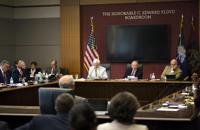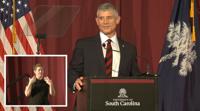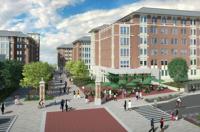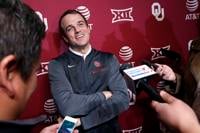COLUMBIA — Months after the University of South Carolina went through a troubled presidential search that led to a probe by accreditors, the state's largest college closed its campus to prevent a huge COVID-19 outbreak and worked to bring students back to the classroom after a projected $165 million revenue shortfall.
In the midst of the turmoil, the leadership of USC's governing board changed with Williamsburg County heart surgeon Dorn Smith taking over as chairman for Charleston tax attorney John von Lehe.
Smith, along with new board vice chairman, Lexington County attorney Thad Westbook, have begun working with school leaders to direct the university system, which has 50,000 students on eight campuses.
They first had to face a final cloud hanging over the presidential search that had ended with the divisive hiring of retired West Point Superintendent Bob Caslen: a review of board behavior and structure by the Southern Association of Colleges and Schools, the school's accreditors commonly known as SACS. The accreditors expressed concern about how the board could prevent outside interference after Gov. Henry McMaster lobbied trustees to hire Caslen.
SACS reported in January that the board made enough changes, especially in trustee conduct, to end its scrutiny of USC.
Smith and Westbrook spoke with The Post and Courier recently to discuss the end of the SACS review and what they planned next for USC.
What would you credit for SACS ending its review so favorably for USC?
Smith: "I think primarily the fact that over the last year the board (went) through a complete reorganization and and have established the governance committee, led by our Vice Chairman Thad Westbrook. ... I credit the hard work of this board in taking the initiative to step forward and say look, these are the issues that are here, and we're not content to just answer, one and two, we're going to revamp the whole thing and have a fresh start."
Westbrook: "I think we received fair criticism, we took it to heart. And we worked hard over the past year to address those issues. ... We are step by step going through the bylaws, again, to make sure that we're comfortable with everything."
Trustees are elected by legislators and the governor has a board seat. How do you separate the politics from the business of managing USC?
Smith: "The short answer to that is you never completely separate it, but let me also say that over the last year and a half, we have worked very diligently to help restore the trust that the Legislature and the governor has in the board. It is an ongoing process. It's just like your relationship with your wife or your friends; it will continue to evolve, not only today and tomorrow, but ongoing forever. Are there bumps in the road or pitfalls? Yes. But I believe that with the structures that we have put in place that we have the opportunity to move forward."
Westbrook: "We are a state agency; we're a creature of state government. We have a budget proposal that goes to the General Assembly and so there's engagement that we have with them, and the governor's office, because of that."
Since SACS' review, how has behavior changed with people approaching trustees seeking favors?
Smith: "There's always going to be issues. Most of the time, those people just need to be pointed in the right direction. But that's not a board function per se. We don't control the seating at the games. We don't control the admissions process. ... I think that, with the new governance structure, that has reiterated that, and quite frankly, I think it's a lot better now than it used to be."
Why is it better?
Smith: "I don't know if it's just that with everything that has gone wrong that everyone is looking at it differently, especially with all of the press that was put on that. We haven't issued a policy or done anything, but I think part of it's just education, quite frankly, not only for the board, but for the public and for the legislators."
What did you learn from the presidential search?
Smith: "I think the board did a poor job communicating with the stakeholders, and I think we learned our lesson from that. And I think that there was a lack of transparency and information that was there, which I accept responsibility for as a member of the board, as does Thad. And I think that the fact that the results speak for themselves now. Not only is the board more transparent, but Bob Caslen has come in and has been an excellent president. He has again exceeded the expectations of the students, of the faculty, and he has had buy-in."
Westbrook: "Looking back, I think that if we had communicated more clearly ... and earned the trust of stakeholders, through that process, I think, everybody would have been better off (and) I think people would have understood what was going on and where we were going. And so, with the work we're doing as a board, particularly in reorganization and the governance committee, it's all very transparent."
When he first arrived in 2019, Caslen spoke about bolstering online education at USC. Less than a year later, the pandemic started and you got a view of what online education looked like. How does this affect your plans for the school's future?
Smith: "There are always going to be areas that require in-person, on-campus education: medical school, nursing school, those sorts of things that you can't do even as good as artificial intelligence is. You wouldn't want to fly an airplane with someone who had only been trained on a simulator would you? That being said, we also recognize that there are areas that we do hope to continue to grow. All the pandemic has done is accelerate the issue of online education and move it up probably by the factor of five to 10 years because online education is here and is here to stay.
"One of the things that you miss out with online education, if it's someone (older), then yes probably online education is the way to go. If you're 18 or 19 years old, there's the fact that you've never lived away from home. One of the most important things you get about education is not always necessarily in the classroom, but is the experience of living away independently and learning to be your own person and deal with people and deal with crises and those issues. So I don't ever envision online education completely surpassing and supplanting in-person aspect of it, but I do think the paradigm has shifted dramatically forever."
Westbrook: "We're talking about greater access to college education for students all across South Carolina, particularly the rural areas. And then we're also thinking about military. South Carolina is a military state. And we have great programs to provide college classes to members of military. And so you're going to see a renewed emphasis on that."
What is the impact on construction plans, such as the South Campus Village, if you have fewer students on campus in future years?
Smith: "That's being constantly evaluated and is not a static process. It's a live, evolving process. With the South Campus village, those beds are in demand right now, whether or not we grow. If you look at the number of students that we have there, there's only enough housing on campus for freshmen and barely enough for that now. If the number of students starts to lag, and that certainly could be possible, then you continue to evaluate. But know that the university is actually in a great financial state right now. If the number of students were to go down, then what you do is you continue to grow the programs where the demand is there: nursing, business, engineering, hospitality and retail (management)."
How is the board looking ahead to the next few years?
Smith: "First of all, we hope come the fall of '21 that we will be back with in-person classes and, quite frankly, the whole state will be vaccinated. And so there'll be some return to normalcy. As far as the vision for the university, I think that the priorities for us, are the areas of excellence that we want to continue to promote: building a new medical school and that campus (in the BullStreet District near Prisma Health's main Columbia hospital) is the No. 1 priority, and continuing to grow the health sciences. We have a huge shortage of nurses and nurse practitioners as well as physicians in this state, and we feel that we have an obligation to help with that. We also want to continue to stress and grow our engineering and computer sciences program, and we want to grow the number of teachers that we're producing. We want excellence in the hospitality and retail management and the business school, which has been the flagship of the university for a number of years now, needs to maintain and continue to grow its reputation."
"And we want to continue to integrate the satellite campuses to truly make it a system. For a long time, Columbia has been perceived as the 800-pound gorilla that eats everything, and there's nothing but crumbs left over for the other schools. That is a priority to make certain that the university is looking at itself as a system and not as a main campus and satellites."
How long before the football team turns around under new head coach Shane Beamer?
Smith: "The change in the coaching regime has brought renewed enthusiasm and optimism. Neither Thad nor I are crazy enough to think that just by changing coaches that we're going to compete against Alabama next year in the National Championship. But again, the commitment is towards excellence in every way. And we believe, with Coach Beamer and his coaching staff that he's assembling now, that we do have the opportunity to change the face of the university. And like it or not, athletics is like a surgical wound, if you will. You do a good job closing the incision, people think you did a good job on the inside as well as the outside. We know we're doing a good job on the inside with academics, though there's always room for improvement. We also want to do a great job with athletics as well."
"board" - Google News
January 31, 2021 at 11:30PM
https://ift.tt/3j5qaQ7
USC's plans after accreditation probe, COVID outbreak: Q&A with board leaders - Charleston Post Courier
"board" - Google News
https://ift.tt/2KWL1EQ
https://ift.tt/2YrjQdq
Bagikan Berita Ini


















0 Response to "USC's plans after accreditation probe, COVID outbreak: Q&A with board leaders - Charleston Post Courier"
Post a Comment